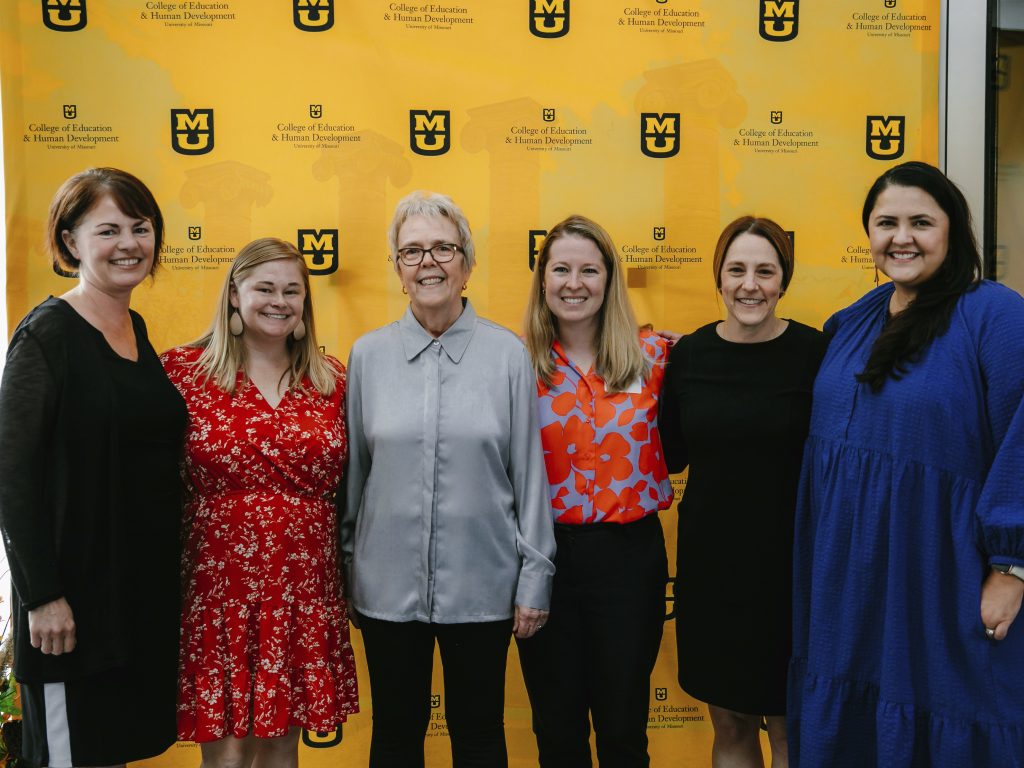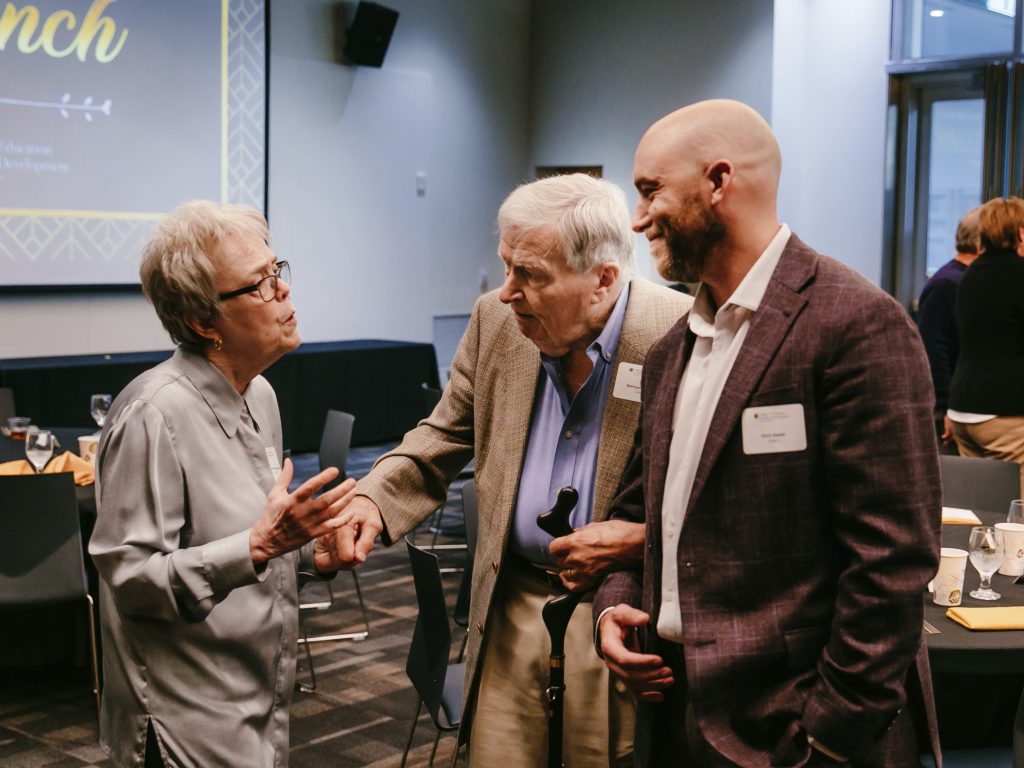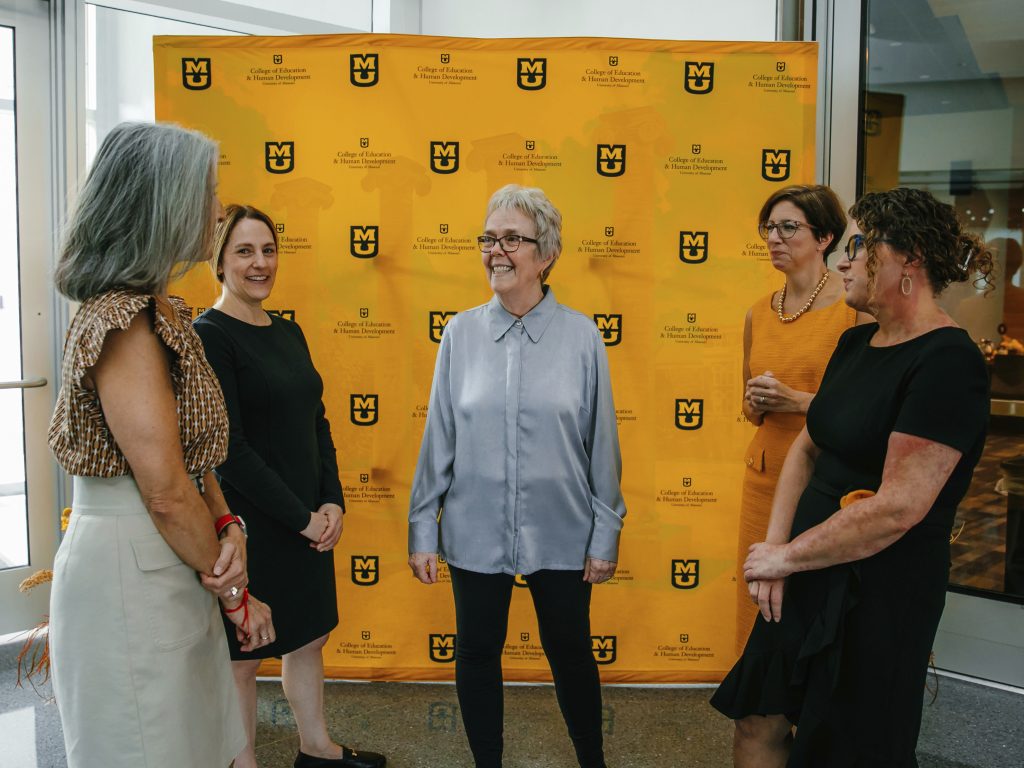Paying it forward: Mizzou alumna helps inspire the future of PK-12 education
A $4 million gift to the Mizzou College of Education and Human Development will benefit students and faculty studying PK-12 education.

Oct. 1, 2024
Contact: Eric Stann, 573-882-3346
University of Missouri alumna Margaret “Peg” McLaughlin has dedicated her life to helping children, families and teachers. Her influence will now live on through future educators trained at Mizzou.
In 2021, McLaughlin established two fellowships for faculty at Mizzou’s College of Education and Human Development: the Margaret McLaughlin Faculty Fellow in School Counseling and Mental Health and the Dr. Lydia Walker Faculty Fellow in Reading Education and Literacy. Recently, she pledged $4 million from her estate to elevate these two positions to endowed chairs in the college.
McLaughlin’s generosity will help the college attract and keep top faculty while providing the necessary resources for research in school counseling, mental health and reading and literacy — all important areas of study in PK-12 education.
“This is the largest gift the college has ever received, and it will address some of the biggest issues facing schools today,” said Sarah Diem, interim dean of the College of Education and Human Development. “We are honored to continue the legacy of these exceptional educators.”
Using personal experience to guide others
McLaughlin graduated from Mizzou’s College of Education and Human Development in 1983 with an educational specialist degree in counseling and personnel services along with her licensed professional counselor certificate.
McLaughlin, who frequently expresses that public schools saved her life, began her education career teaching elementary school in Pembina, North Dakota, and Pipestone, Minnesota. It was in Pipestone that she met her life partner, Lydia Walker. As educators, McLaughlin and Walker — who passed away in 2018 — had a shared passion for teaching.
Before McLaughlin’s retirement in 2003, she was a guidance coordinator with the Raytown C-2 School District in Raytown, Missouri. There, she developed the district’s counseling program — an accomplishment she credits to her MU advisor, Norm Gysbers, for helping build the foundation.

Throughout much of her adult life, McLaughlin sought her own therapy to overcome the trauma and grief she witnessed during her childhood. That keen awareness of what a child may be experiencing affected the way she approached teaching and counseling relationships with students throughout her career.
In 1990, McLaughlin wrote an article in Counseling Interviewer to help counselors understand what students in similar situations may be experiencing. Sharing her personal story publicly showed the deep care and compassion that has guided her throughout her life.
That same generosity guided McLaughlin to choose her estate gift as her next avenue to make a difference in the lives of children, families and educators.
“For both Lydia and myself, our education and careers allowed us to give back to children,” McLaughlin said. “We both believed in the saying, ‘Childhood is a time of hope.’”

Forging a lasting imprint
As a Dr. Lydia Walker faculty fellow at Mizzou, Angie Zapata said one of her most rewarding experiences has been to give great books to teachers to share with their students.
“My research on classroom literature shows that books reflecting children’s lived experiences and the global landscape around them boost student engagement and support literacy success,” said Zapata, an associate professor of language and literacies education. “I am deeply grateful for the learning, care and commitment this fellowship has provided. The Walker legacy lives on in classrooms with teachers and their students every day.”
Fellow Mizzou professor Wendy Reinke has used funding from the Margaret McLaughlin Faculty Fellowship to develop a high school advisory board, allowing a youth voice to be added to her work implementing a comprehensive school mental health model in Boone County, Missouri.
“We were able to hire interested youth to be part of our research team,” said Reinke, a Curators’ Distinguished Professor in Educational, School and Counseling Psychology. “These youth researchers have conducted focus groups with other teens about mental health stigma and help-seeking behaviors as well as produced social media content for our anti-stigma campaign. We would not have been able to truly and authentically add youth voice to our work without Peg’s generous fellowship.”